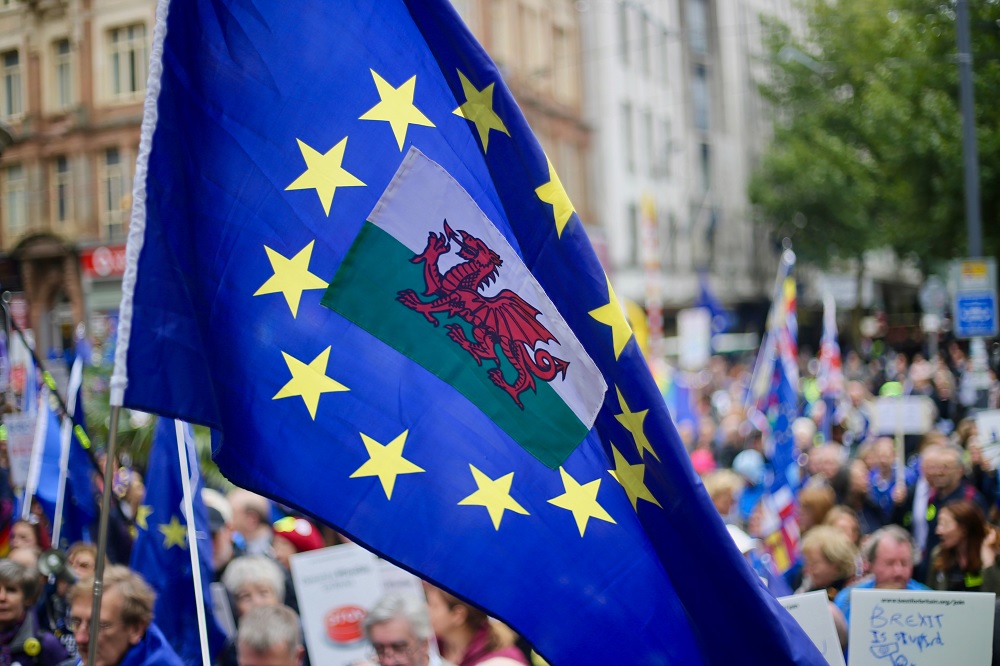Cultural Iron Curtain: Touring becoming unviable for Welsh artists due to Brexit barriers

Touring Europe has become a huge challenge for many Welsh performers because of extra costs and paperwork put in place since the UK left the European Union, with some likening the impact of the challenges to “a cultural Iron Curtain”.
Barriers have slowed free movement, and many artists are simply choosing never to tour, the Senedd’s Culture Committee has been told, as part of its inquiry into culture and the new relationship with the EU.
The Committee heard that extra administration and added costs have reduced performers’ ambitions to work in Europe.
Today’s report outlines many problems that Welsh artists are facing.
Moving people
UK creative workers touring in the EU must now navigate a patchwork of visa and work permit arrangements in 27 EU countries. Restrictions mean artists can only work in EU countries for a set number of days.
Many witnesses explained how this had resulted in lost work and income, reduced contract viability, and additional return trips to the UK between performances, to renew visas or to stay within the Schengen area’s 90-day limit within a 180-day period.
NoFit State circus told the Committee: “Within our contracts now, we have to include a clause that they’re not allowed to go on holiday into the EU in the month immediately preceding a contract because, if they did, that would break into their 90 days and they would not be able to work in the EU for our contract.
“I’d never imagined in my life that I would have a contract with an artist making such a demand on them, that they should affect their personal lives outside of working for us to that extent.”
Moving goods
Artists face increased administrative and financial burdens when moving goods cross-border. Customs requirements for instruments and equipment, such as export declarations, import duties and taxes, as well as haulage restrictions, are all challenges raised with the Committee.
The need for a goods passport (‘Carnets’) has had a significant impact on transporting equipment. Witnesses describe them as “daunting”, “extremely confusing”, and the “biggest paperwork nightmare of my life”. Some have paid experts to handle the process on their behalf.
Border checks are applied inconsistently, including at the Holyhead-Dublin crossing, making it hard for creative workers to know which rules they need to follow.
Small World Theatre and Nofit State told the Committee: “The example of the wrong stamp in the wrong place on the form, that is happening to everybody all of the time and, as a result, equipment is being held at borders, trucks are being held at borders, the officials on the ground don’t know what the rules are and they are making mistakes”.
Small World Theatre likened the impact of the challenges to, “a cultural Iron Curtain”.
BECTU, the union for the creative industries, added “…we had in the UK a world-class entertainments industry, which was thriving, which has gone to struggling”.
Witnesses described how these new barriers have led to lost opportunities, reduced activity, increased costs and lost income.
The Welsh Government must act
The Senedd’s Culture Committee report is calling for urgent action from the Welsh Government to do all it can to tackle these issues, using all the levers available to it.
The Committee is also calling for the Welsh Government to:
- set out what guidance and support it provides to creative workers on cross-border working post-Brexit
- provide its assessment of Brexit’s impact on the culture sector in Wales
- set out what steps it has taken to mitigate the financial impact of Brexit on the sector in light of the loss of EU funding
Suffering
Delyth Jewell MS, Chair of the Senedd’s Culture, Communications, Welsh Language, Sport and International Relations Committee said: “Welsh performers and artists are clearly suffering due to Brexit, we have heard shocking evidence of how extra costs, endless new paperwork and travel restrictions are stifling Wales’ vital creative industry.
“Touring has fast become unviable for too many performers. Brexit barriers have slowed the free movement of creativity, ideas, and many artists are choosing simply never to tour.
“Wales is a nation rich in passion, creativity and talent, but what price are we expecting our artists to pay for pursuing their passion? Our society must find better ways of reflecting the value of the arts to our economy and our way of life. Our artists must be allowed to tell Wales’ story to the world.
“As a committee, the bluntness of the message we’ve heard stays with us. The stakes are high and every week our artists are choosing not to pursue new ventures and not to make life-changing connections because of the barriers placed in their path.
“We need action from the Welsh and UK governments and today we have set out a number of recommendations to tackle the enormous challenges that our creative industry faces.
“This must be addressed as a matter of urgency before it is too late, and we lose a generation of talent for good.”
Support our Nation today
For the price of a cup of coffee a month you can help us create an independent, not-for-profit, national news service for the people of Wales, by the people of Wales.






Wales voted to leave the EU. People insisted they knew what they were voting for and took offence if it was suggested they didn’t. Fellow Welshmen have helped to screw over the country and musicians along with it. So you know who to blame. Time to maybe hang up the guitar and find another line of work. The shortage of EU workers no doubt provides much employment opportunity in the many industries which have been damaged by Brexit reality.